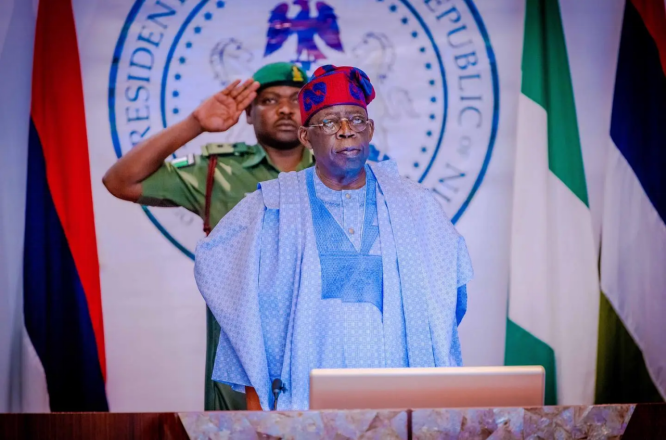
Nigeria’s New Anthem written by a Briton, Ignites Controversy After Hasty Law Passage.
By Fiona Nanna, ForeMedia News UK
Thursday, May 30th, 2024
Nigeria ushered in a new era on Wednesday, May 29, as a freshly passed law replaced the longstanding national anthem with a rendition last heard nearly fifty years ago. However, the swift legislative process behind this decision has ignited widespread criticism for its lack of public consultation.
President Bola Tinubu promptly ratified the law, following its rapid approval by both chambers of the National Assembly, dominated by the ruling party. The bill, introduced and passed within a week, stands out for its unusually expedited journey through the legislative process, typically a more prolonged affair for significant legislation.
The outgoing anthem, “Arise, O Compatriots,” had been in use since 1978, instated during a period of post-civil war reflection, urging Nigerians to serve their nation with love and vigor, honoring past sacrifices.
Its successor, “Nigeria We Hail Thee,” originally composed in 1960 upon Nigeria’s independence from Britain, had been discarded during military rule. Penned by Lillian Jean Williams, a British expatriate residing in Nigeria at the time, the anthem now takes immediate effect.
The inaugural performance of the new anthem, witnessed by President Tinubu at a legislative session, marked his first anniversary in office. However, the swift transition met with resistance from segments of society, including Oby Ezekwesili, a former minister and presidential hopeful, who denounced the move as emblematic of political disregard for public sentiment.
“In 21st Century Nigeria, the imposition of a colonial National Anthem with pejorative references like ‘Native Land’ and ‘Tribes’ on our Citizens without consent is unacceptable,” Ezekwesili voiced on social media.
Conversely, proponents of the change argued against the continuation of an anthem introduced under military rule, viewing it as a reflection of a bygone era.
“Anthems serve as ideological anchors, guiding the populace. The military’s alteration of the anthem was regrettable,” remarked public affairs analyst Frank Tietie, voicing support for the new composition.

